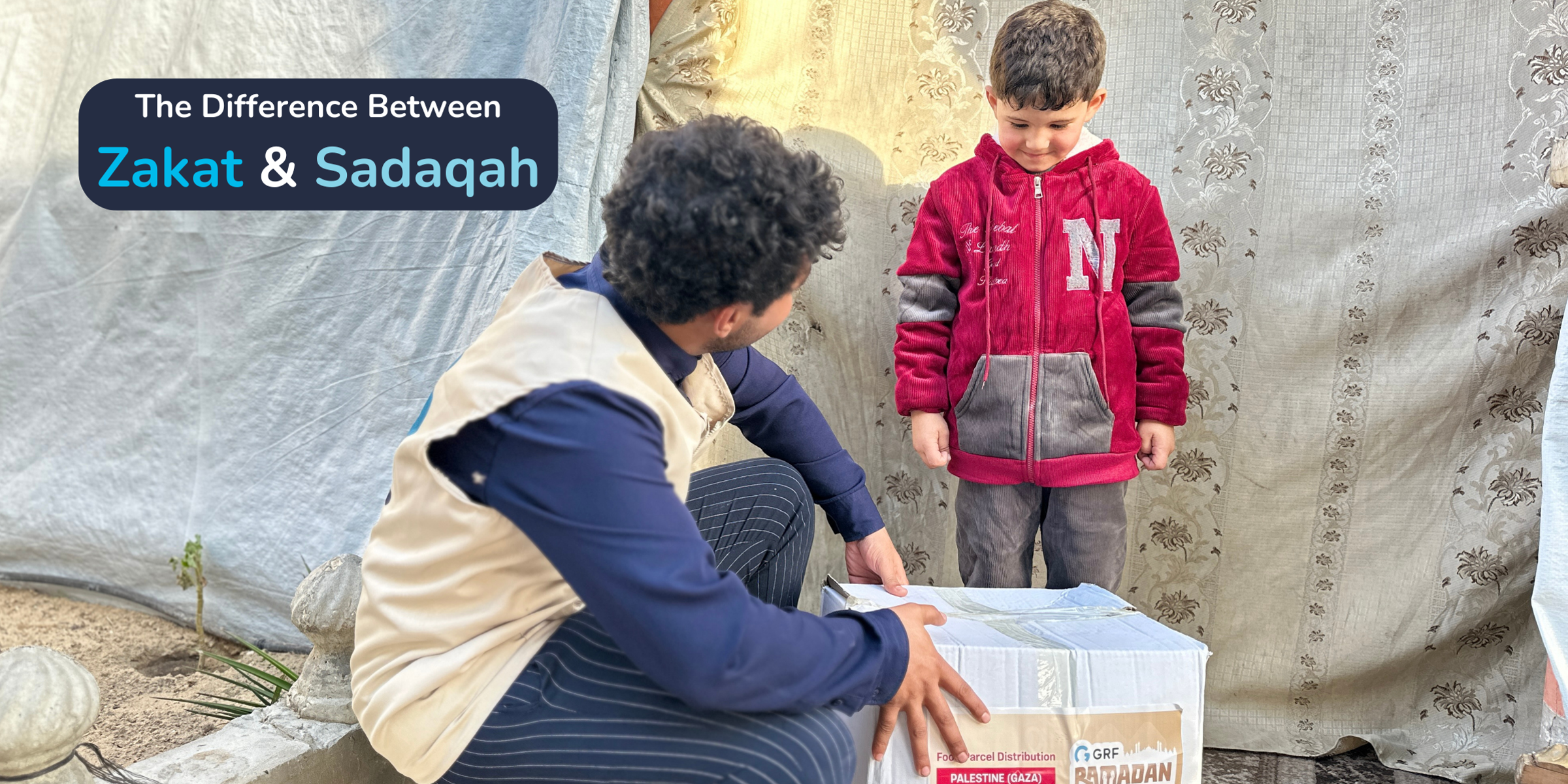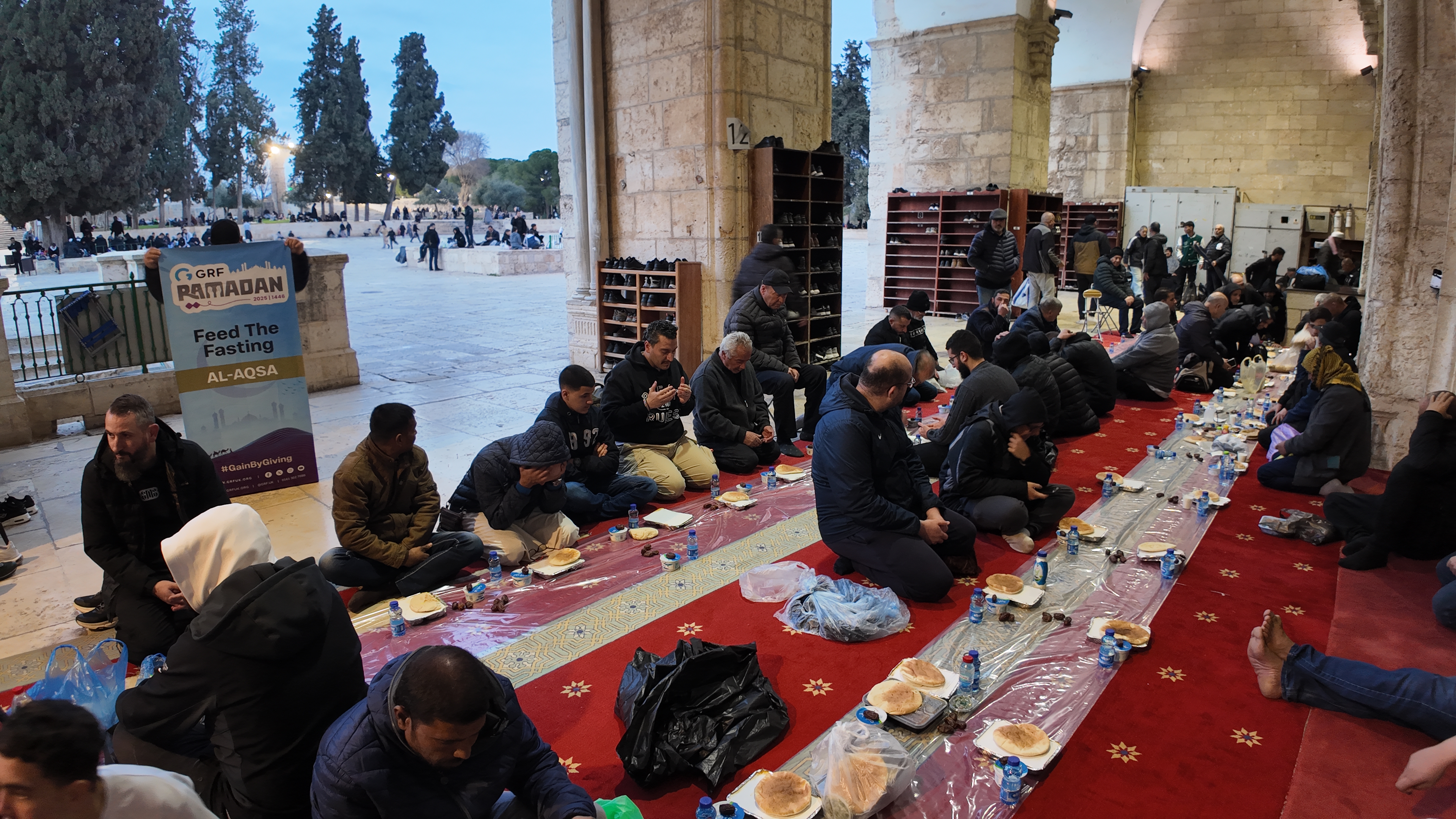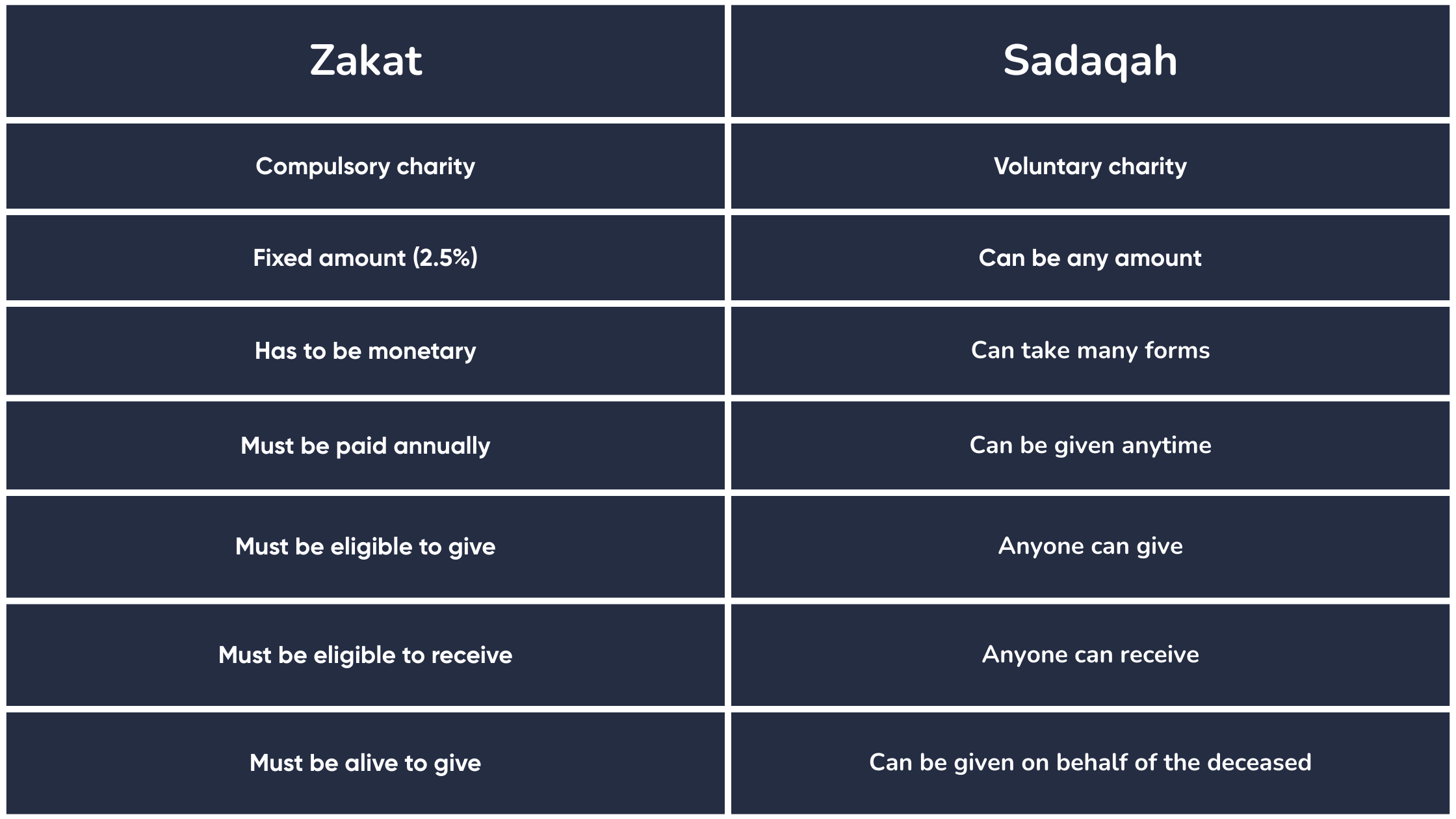We're sharing the difference between both types of Islamic donations.

Zakat is an obligatory form of charity that requires a Muslim to donate an annual payment of 2.5% of their wealth. Sadaqah refers to voluntary charity. Let's expand on these two acts of charity.
Zakat is one of the 5 pillars of Islam, along with Shahadah, Salah, Sawm and Hajj. It is a key part of Islam that all Muslims must abide by. Any Muslim who is eligible must give this mandatory charity. The total amount of Zakat to give is 2.5% of savings and Zakatable assets. Zakatable assets include cash, business assets, items of gold & silver, livestock, agricultural produce and any other treasure troves.
There are 8 categories of recipients outlined in the Quran. Most charities will give Zakat to the poor and the needy.

Sadaqah is voluntary charity and can be carried out in many different ways, not just monetary donations. All acts of kindness and actions of righteousness are classed as Sadaqah, including cash donations. Examples include donating food packs to people in need, helping those suffering from natural disasters, or simply smiling at someone. Anyone can receive Sadaqah and there are no restrictions on how much Sadaqah a person can give.
There is a type of Sadaqah called Sadaqah Jariyah, which is a form of charity that provides ongoing rewards. Any act of kindness that allows people to continuously benefit is classed as Sadaqah Jariyah. This includes building a water well where people can drink for years to come, teaching someone a beneficial skill or any other form of continuous charity. Sadaqah can also be given on behalf of someone else, whether they are deceased or alive.

Muslims must give Zakat. Zakat contributions are compulsory, reducing poverty, strengthening ongoing faithfulness and providing immense rewards. Sadaqah is voluntary, however is encouraged and provides many benefits. By giving Sadaqah contributions, individuals can greatly improve the quality of their lives, by receiving protection against calamities, having sins expiated and earning heavenly reward.
It's important to remember that Sadaqah can be more than financial contributions. Therefore, a person can benefit largely from non-financial forms of Sadaqah, such as a kind word, helping others or even smiling at someone.

One of the biggest differences between Zakat and Sadaqah is that Zakat is an obligatory charity that is 2.5% of wealth, whereas Sadaqah is voluntary and there is no specific amount to give. Both charity methods are essential in improving society and supporting vulnerable communities across the globe.

Thanks to your Sadaqah and Zakat donations, we have helped people in some of the world's hardest-to-reach areas, including Gaza, Sudan, Yemen and more. But the need is still there, and for some, the situation is getting worse. Fulfil your religious obligations and support our brothers and sisters in need today. Your generosity could change someone's life forever.